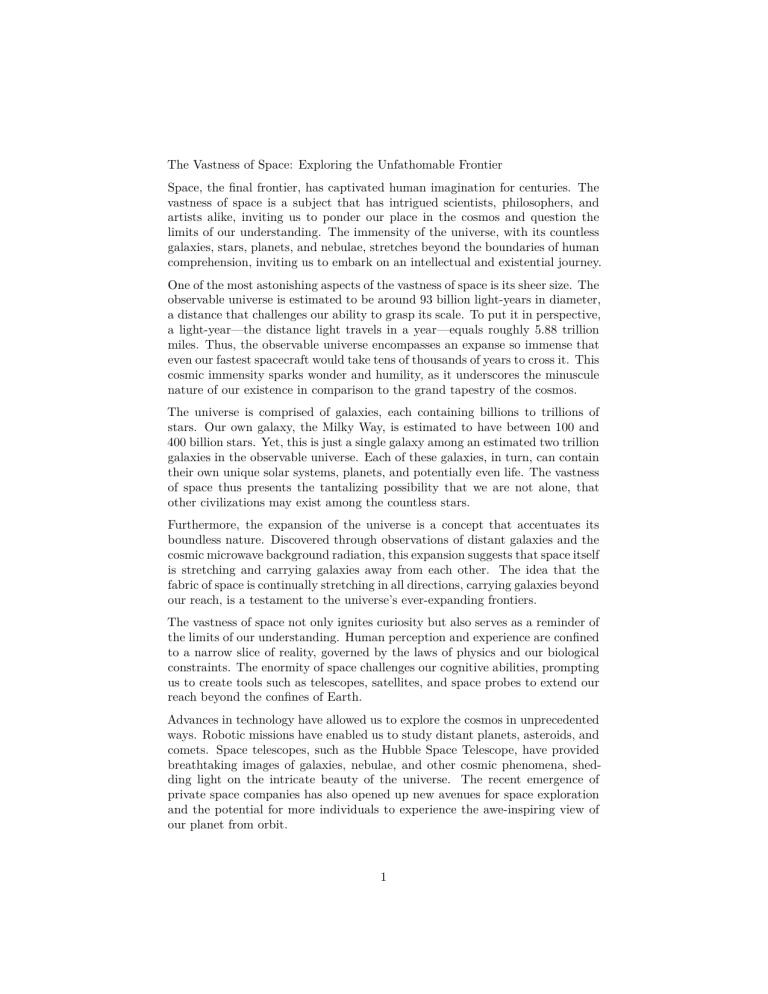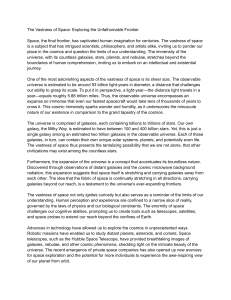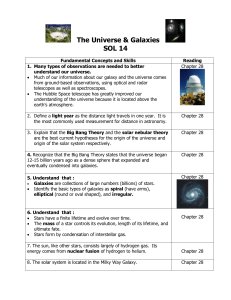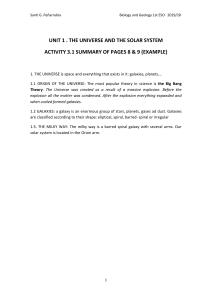
The Vastness of Space: Exploring the Unfathomable Frontier Space, the final frontier, has captivated human imagination for centuries. The vastness of space is a subject that has intrigued scientists, philosophers, and artists alike, inviting us to ponder our place in the cosmos and question the limits of our understanding. The immensity of the universe, with its countless galaxies, stars, planets, and nebulae, stretches beyond the boundaries of human comprehension, inviting us to embark on an intellectual and existential journey. One of the most astonishing aspects of the vastness of space is its sheer size. The observable universe is estimated to be around 93 billion light-years in diameter, a distance that challenges our ability to grasp its scale. To put it in perspective, a light-year—the distance light travels in a year—equals roughly 5.88 trillion miles. Thus, the observable universe encompasses an expanse so immense that even our fastest spacecraft would take tens of thousands of years to cross it. This cosmic immensity sparks wonder and humility, as it underscores the minuscule nature of our existence in comparison to the grand tapestry of the cosmos. The universe is comprised of galaxies, each containing billions to trillions of stars. Our own galaxy, the Milky Way, is estimated to have between 100 and 400 billion stars. Yet, this is just a single galaxy among an estimated two trillion galaxies in the observable universe. Each of these galaxies, in turn, can contain their own unique solar systems, planets, and potentially even life. The vastness of space thus presents the tantalizing possibility that we are not alone, that other civilizations may exist among the countless stars. Furthermore, the expansion of the universe is a concept that accentuates its boundless nature. Discovered through observations of distant galaxies and the cosmic microwave background radiation, this expansion suggests that space itself is stretching and carrying galaxies away from each other. The idea that the fabric of space is continually stretching in all directions, carrying galaxies beyond our reach, is a testament to the universe’s ever-expanding frontiers. The vastness of space not only ignites curiosity but also serves as a reminder of the limits of our understanding. Human perception and experience are confined to a narrow slice of reality, governed by the laws of physics and our biological constraints. The enormity of space challenges our cognitive abilities, prompting us to create tools such as telescopes, satellites, and space probes to extend our reach beyond the confines of Earth. Advances in technology have allowed us to explore the cosmos in unprecedented ways. Robotic missions have enabled us to study distant planets, asteroids, and comets. Space telescopes, such as the Hubble Space Telescope, have provided breathtaking images of galaxies, nebulae, and other cosmic phenomena, shedding light on the intricate beauty of the universe. The recent emergence of private space companies has also opened up new avenues for space exploration and the potential for more individuals to experience the awe-inspiring view of our planet from orbit. 1 In conclusion, the vastness of space is a topic that stirs the human imagination and beckons us to push the boundaries of our understanding. Its mind-boggling dimensions, filled with galaxies, stars, and mysteries, compel us to contemplate our place in the cosmos. As we continue to explore and unlock the secrets of the universe, we are reminded that while the universe is vast, our determination to explore and comprehend its mysteries is equally boundless. 2




